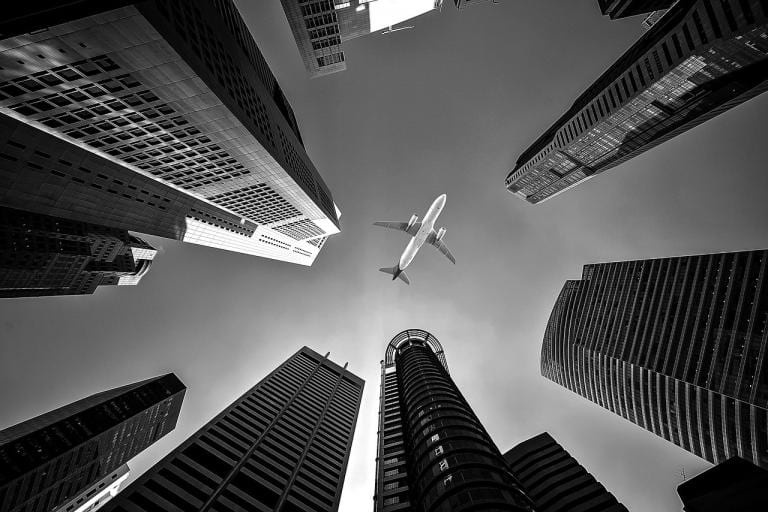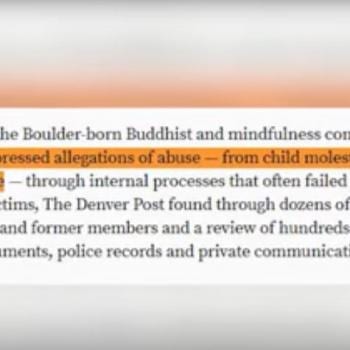It’s mid-July, nearly 6 months since the coronavirus outbreak began taking over front-page news around the world. And we’re a month or so from a major shift in human populations as schools and universities (possibly) reopen with in-person classes: with K-12 schools drawing kids out of homes to mix with other kids and colleges and universities drawing students from across cities, states, and even potentially foreign countries.
I’m seeing a number of colleagues and friends bemoan the current state of things, longing for a return to “normal.” Many are specifically noting the travel they would be doing right now.
However, as one popular cartoon has illustrated, the COVID-19 pandemic is just one wave of crisis facing humanity. Behind it is a looming financial crisis as governments seek to pay for all of the spending they’ve had to do in the pandemic or have to cut off medical-housing-food-etc benefits they are currently offering. And behind that is the climate crisis: massive wildfires from Brazil to Australia to Siberia signal a quickening pace of climatic instability and some city planners are already making contingency plans for our inaction.
This week, Buddhistdoor Global’s View asks us if we might consider making online life a bit more of a norm, if only to help alleviate the coming two crises after we’ve overcome this first one.
It’s clear that many technophiles have hyped the “disruptive” power of the internet and heralded in this or that “revolution” only to see cutting edge companies and products fall by the wayside as the old order marched forth. It is quite possible, for a while, for a return to the past. 2021 might look a lot like 2017. It might look like 2009. Both are very unlikely given the current status of the COVID-19 pandemic, but I know many people hope and dream that one of these realities will materialize.
However, can we look at the concentrations of wealth that have allowed our “normal” in 2008 or 2017 or today? Are these flows of capital sustainable? Are they beneficial for the most people? Are they even beneficial for those of us who have often been at the receiving end? And I write that as a newly middle-class worker after 20 years of just-getting-by student and adjunct professor life. Passing the buck to the Gates’ and the Bezos’ of the world is easy (and worthy, those guys need to be taxed more!), but even middle-class Americans are sitting on wealth greater than 90% of the world.
Secondly, the environmental cost of our lifestyles: is that sustainable? When I was teaching I loved the fact that my employer would fly me to India or China every year. I also would love more people to have that opportunity. But that desire doesn’t square well with another desire: to see CO2 emissions drop globally. I could pass the buck once more: surely there are people polluting more. But again, as someone with the privilege of flying around the world once a year, I was (am?) part of the top 5-10% of humanity in terms of this particular way to damage the environment.
With that in mind, why not allow this crisis to slow us down and bend us toward a more equitable and environmentally friendly way of life? From academic friends, I have already seen many calls to make more meetings virtual, or at least partly virtual (the major conference in religion, AAR, can see 10,000 people converge from around the world in hotels and conference centers for a few days). In response to COVID-19, that conference has gone 100% online for 2020. Yet there have been calls over the years to make it online (or partly so) to help alleviate the other two crises. Will it?
It seems fair to say that a desire to make everything online now and forever represents a rather extreme view in today’s world. Yet another extreme might be a wish to go back to patterns of consumption and inequality of the past.
Somewhere in the middle lies the wisest path – one which learns from our isolation and virtual lives in 2020 to reshape a future in which we don’t have to travel around the world so often, and others can benefit from our staying home.
The experiences of life in a Buddhist monastery in India or China have been life-changing for me and countless students. However, that life-changing value must be weighed against the levels of privilege needed for most to have it as well as the cost to future generations in ecological damage.
Just how we do this is difficult to know. Non-travel-non-harm initiatives? Stay-home-retreats? Emphasis on the merit of not consuming global-travel?
I’m not sure. But certainly it is an issue on my mind and one I will grapple with and I hope you do too.
Image by Sasin Tipchai from Pixabay














